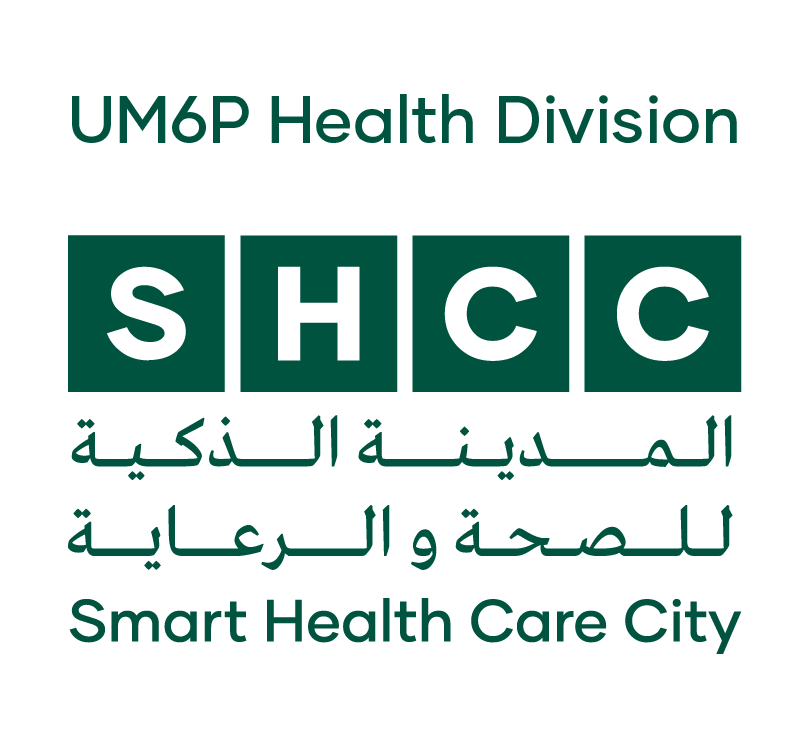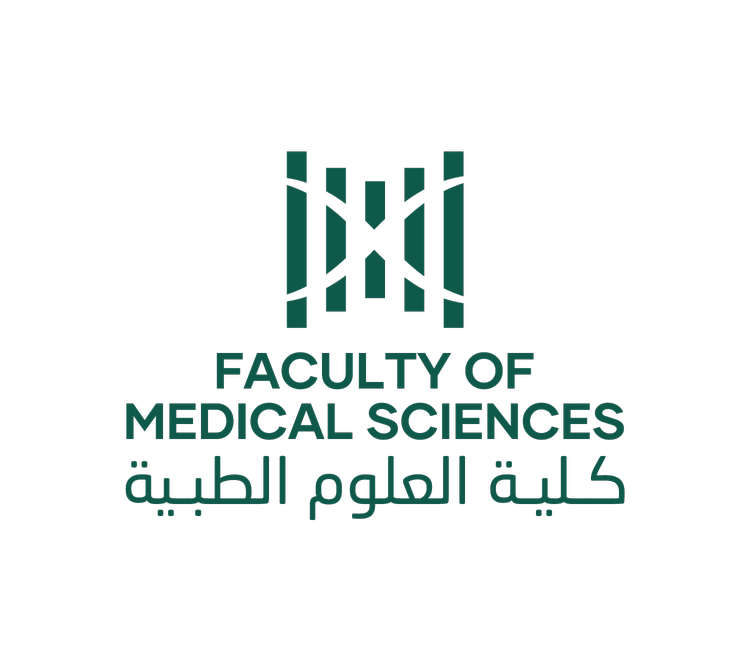Our Faculties
Our national and international teaching staff are academics, medical researchers, healthcare practitioners, and professionals. They are all experienced and passionate about teaching, applied, and/or clinical research. At the FMS, Full Time and Affiliated Faculties are all dedicated to training and mentoring students.
Full Time Faculties

Dr. Hassan Ainani earned his Ph.D. jointly from the Hassan II Agronomic and Veterinary Institute in Rabat, Morocco, and the Institute of Cellular and Integrative Neurosciences at the University of Strasbourg, France. His research focuses on the implication of both coding and non-coding RNAs in the development of protein aggregates, particularly in the context of neurodegenerative diseases like Alzheimer’s disease. Dr. Ainani utilizes a combination of bioinformatic and experimental approaches to investigate these processes, particularly focusing on liquid-liquid phase separation.
Interest
Dr. Hassan Ainani’s research interests and focus are outlined as follows:
-Investigating gut microbiota dysbiosis and its role in the progression of Parkinson’s disease (PD).
-Specifically studying transcriptomic alterations and α-synuclein aggregation within the enteric nervous system under gut microbiota dysbiosis and their contribution to PD pathogenesis.
-Collaborating on research concerning the central control of breeding activity in dromedary camels, including the investigation of seasonal breeding patterns and the understanding of central mechanisms inducing ovulation in this species.
Research Focus
-Dr. Ainani’s research spans the fields of biology, neuroscience, and physiology, encompassing a multidisciplinary approach to address complex biological phenomena associated with gut microbiota dysbiosis in PD progression and the central control of breeding activity in dromedary camels.
Contact : hassan.ainani@um6p.ma

Sanae Ben Mkaddem is an immunologist and principal physiopathologist investigatorIn 2018: she received a HDR diploma (French habilitation for PhD supervision). University Sorbonne Paris. Lastly, since 2015, she is appointed in a permanent position as a Senior scientist at INSERM, where she created her own group. She has an excellent and original scientific production (40 papers) and participate to several teaching activities. Since 2010, she developed her projects on ITAM signaling and the regulation of inflammation. Her works on the receptors with ITAM domains and on the functional duality of these receptors have led to high-level publications in high-impact journals (Blood, J Clin Invest, Nat Comm, Cell Rep). Her work described new major conceptual advances such as the demonstration that immunoglobulin receptors have to considered as part of both the innate and adaptive immunity during infection, which opens new research avenues. Pr Ben Mkaddem is part of a high-level research international network and was successful to obtain several funding to develop her research in an autonomous way. She has also demonstrated her ability to valorize economically her research as she is coauthors of 5 patents. In 2018, she received several awards such a Remarquable assessment by the INSERM committee CSS3 and an Investigator in Immunology Award at the FASEB (Federation of American Societies for Experimental Biology) at conference on Immunoreceptors and Immunotherapy. USA, Denver. Since June 2021, she joined UM6P as an associated professor. She is a head of the team Immuno-Oncology. Her team works on the immune-regulation of inflammation during inflammatory and auto-immune diseases and recently, on the development of immunotherapy during cancer.
Contact: sanae.benmkaddem@um6p.ma
https://orcid.org/0000-0001-7919-2233

Dr. Reda Ben Mrid obtained his Ph.D in Biochemistry and Molecular Biology through a joint program between the Faculty of Sciences and Techniques of Tangier, Morocco, and the University of Pierre and Marie Curie of Paris, France. His doctoral research focused on molecular screening of natural substances with pharmacological interest, particularly those exhibiting anticancer activities.
Currently, Dr. Ben Mrid is actively engaged in cancer research, with a primary focus on gliomas. His research endeavors aim to identify new targets, specifically non-coding RNAs, and to develop innovative therapeutic solutions utilizing RNA therapy and the screening of new natural compounds.
Dr. Ben Mrid’s dedication to advancing cancer research is evident through his ongoing efforts, and his work holds promise for significant advancements in cancer treatment.
Contact : reda.benmrid@um6p.ma
Interest
Dr. Reda Ben Mrid’s research interests and focus primarily on gliomas are outlined as follows:Interests:
- Investigating the complex molecular mechanisms underlying glioma pathogenesis, with a specific emphasis on non-coding RNA.
- Developing innovative tools for early and accurate diagnosis of various stages of glioma.
- Designing novel therapeutic strategies for glioma treatment, leveraging RNA therapy and the exploration of new natural compounds.
Research Focus: Dr. Reda Ben Mrid’s research activities are categorized into fundamental and applied research to ensure a comprehensive understanding of gliomas and the development of effective solutions:
- Fundamental Research:
- Dr. Ben Mrid aims to unravel the underlying molecular mechanisms of gliomas, including the pivotal role played by non-coding RNAs in cancer development and progression.
- By pinpointing these molecular targets, he endeavors to devise new therapeutic approaches capable of inhibiting tumor growth and enhancing patient outcomes.
- Applied Research:
- Dr. Ben Mrid is dedicated to creating innovative therapeutic solutions grounded in RNA therapy and the exploration of novel natural compounds.
- RNA therapy, a promising avenue in cancer treatment, involves utilizing RNA molecules to selectively disrupt gene expression, effectively targeting cancer cells while minimizing adverse effects on healthy tissue.
- Through the screening of natural compounds, Dr. Ben Mrid seeks to identify potent drug candidates with heightened efficacy and reduced toxicity.
Dr. Reda Ben Mrid’s research endeavors hold significant potential for advancing cancer treatment, particularly in the realm of gliomas. His focus on non-coding RNAs and RNA therapy presents a fresh approach to combating cancer, offering promise for overcoming the limitations associated with conventional chemotherapy and radiation therapy. Through the integration of fundamental and applied research, Dr. Ben Mrid is poised to make substantial contributions to the field of cancer research, providing hope for individuals afflicted with gliomas.

Dr. Baudouin BOANIMBEK is a trauma and orthopedic surgeon dedicated to providing exceptional care and innovative solutions for patients dealing with musculoskeletal injuries and conditions. With a solid foundation in medicine and specialized training in orthopedic surgery, Dr. Baudouin BOANIMBEK brings a wealth of expertise to his practice.
Dr. Baudouin BOANIMBEK earned his General Medicine degree and specialty degree from the esteemed Marrakech Cadi Ayyad Medical School, where he honed his skills and developed a passion for orthopedic surgery. He completed a rigorous five-year residency at the University Hospital of Marrakech, gaining invaluable experience in the diagnosis and treatment of orthopedic conditions.
Driven by a commitment to continuous learning and excellence, Dr. Baudouin BOANIMBEK furthered his training in France, where he joined The Louis Pasteur Hospital of Bagnols sur Cèze. There, he pursued advanced studies in shoulder and elbow surgery at the Montpellier Medical School, earning a distinguished degree in the field.
Passionate about advancing the field of orthopedic surgery, Dr. Baudouin BOANIMBEK focuses his research efforts on osteoarthritis, a debilitating condition affecting millions worldwide. Through his involvement in various studies, Dr. Baudouin BOANIMBEK seeks to improve treatment outcomes and enhance the quality of life for individuals grappling with this condition.
As a compassionate and dedicated healthcare professional, Dr. Baudouin BOANIMBEK is committed to delivering personalized, patient-centered care that prioritizes each individual’s unique needs and goals. With a blend of expertise, empathy, and innovation, Dr. Baudouin BOANIMBEK continues to make a meaningful impact in the field of orthopedic surgery, empowering his patients to lead active, fulfilling lives.
Contact : bernard.bakoume@um6p.ma
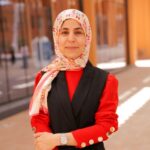
Dr. Najat BOUCHMAA earned her Ph.D. in Molecular and Cancer Biology with a specialization in Biochemistry from the Faculty of Medicine and Pharmacy of Rabat. Presently, she is engaged in a project focused on RNA therapy and genome editing in aggressive brain cancers, with a particular emphasis on epi-transcriptomic modifications.
Contact : najat.bouchmaa@um6p.ma
Interest
- Dr. Najat Bouchmaa’s research encompasses the following:
- Investigating the molecular, cellular, and biochemical mechanisms underlying a novel therapy for aggressive breast cancer, particularly Triple-negative breast cancer.
- Exploring the efficacy of new natural steroids in therapy for triple-negative breast cancer.
Dr. Bouchmaa specializes in Molecular and Cancer Biology, with advanced skills in throughput RNA sequencing data analysis. Her research interests span RNA Therapy, Non-coding RNA, and Epi-transcriptomic RNA Modifications. She actively contributes to various research projects, including RNA therapy in aggressive glioma cancers. Dr. Bouchmaa’s research endeavors are driven by a strong motivation and interest in RNA sequencing techniques, particularly focusing on epi-transcriptomic RNA modifications such as M6A RNA methylation.
Furthermore, Dr. Bouchmaa has a significant publication record, with authored and co-authored scientific articles appearing in reputable peer-reviewed journals such as NPJ Breast Cancer, Frontiers in Oncology, Frontiers in Pharmacology, Biomedicine & Pharmacotherapy, Scientific Reports, Mechanisms of Ageing and Development, Archiv Der Pharmazie, Molecules, Plos One, and Drug Research. She also serves as a reviewer for several peer-reviewed scientific journals and is an active member of various scientific societies.

Dr. Tariq Daouda specializes in applications at the intersection of Artificial Intelligence and Biomedical sciences. He holds a bachelor’s in mathematics and Computer Science from the Université de Lorraine, a Master’s in Machine Learning from Université de Montréal, and a PhD in Bioinformatics also from the Université de Montréal.
Dr. Daouda then moved to Boston to pursue postdoctoral training, where he was affiliated to the Broad Institute, Harvard Medical School, and the Massachusetts General Hospital. His research focuses on the development of novel artificial intelligence methods to improve our understanding of biology with a focus on medical applications.
Over the years he has worked on the identification of markers of cancer and infection at the surface of cells, the integration of different types of single cell sequencing to create accurate maps of individual cell biology, imagery for medical diagnostics, and the analysis of viral sequences notably to identify strains likely to transition between species.
Contact : tariq.daouda@um6p.ma
https://orcid.org/0000-0001-7919-2233
https://scholar.google.com/citations?user=XZtR-UkAAAAJ&hl=pt-PT&oi=ao
Interest
– Deep Learning and AI
– Single cell sequencing
– Venomics
– Biomarkers identification
– Proteomics
– Genomics
– Transcriptomics
– Molecular discovery
Reasearch focus
– Development of Artificial Intelligence Methods
– Improving Understanding of Biology, with Emphasis on Medical Applications
– Application of AI in Biomedical Informatics

Dr. Khalid El Bairi (MD) is a clinical research fellow specializing in oncology, with a primary focus on ovarian cancer. He is renowned for his contributions to the field of predictive and prognostic cancer biomarkers, aimed at enhancing survival outcomes. Dr. El Bairi has authored three books and numerous peer-reviewed articles published in esteemed journals indexed in Web of Science (WoS) and Medline. His research is particularly dedicated to the development and validation of cost-effective biomarkers for gynecological cancers, especially ovarian cancer, in resource-limited settings.
Moreover, Dr. El Bairi is actively involved in promoting research integrity, undertaking various projects addressing predatory publishing and misconduct in clinical and translational investigations.
He maintains an active membership in several international scientific societies, including the European Society for Medical Oncology (ESMO), the African Organization for Research and Training in Cancer (AORTIC), and the American Society of Clinical Oncology (ASCO). Additionally, Dr. El Bairi serves as an editor and reviewer for numerous academic journals, such as BMC Cancer and BJC Reports. He is also a guest editor for several special issues focusing on emerging topics in gynecological cancers, such as platinum-resistant ovarian cancer.
Contact : khalid.elbairi@um6p.ma
Interest
Dr. Khalid El Bairi’s research interests and focus are outlined as follows:
- Comprehensive understanding of the clinical, pathological, and therapeutic characteristics of ovarian cancer.
- Development and validation of cost-effective blood-based biomarkers for predicting survival outcomes and treatment responses in ovarian cancer, particularly in resource-limited settings.
- Establishment of global educational initiatives to provide free training in research methodologies within the field of oncology.
- Investigation of research integrity issues, particularly in generating and publishing clinical and translational data, aiming to address and mitigate misconduct.
Research Focus:
-
- Exploration of the peripheral immune response in ovarian cancer, with the aim of developing affordable biomarkers for predicting overall survival, progression-free survival, and platinum resistance in ovarian cancer patients.
- Conducting various studies in the realm of research integrity to comprehend the global landscape of misconduct in cancer research, thereby contributing to the enhancement of research practices and standards.

Dr. Rachid EL FATIMY received his PhD from the Ecole Normale Supérieure/University Paris VI, France in 2010 and completed his postdoctoral training at Laval University (Canada) and Harvard Medical School & Brigham and Women’s Hospital (USA), where he became a faculty member in neurology. With a background in Biochemistry, Neurobiology, and Cancer Biology, his overarching goal is to advance basic noncoding RNA research towards finding a cure for human brain disorders such as Alzheimer’s disease.
Contact : rachid.elfatimy@um6p.ma
Interest
- Biochemistry, Neurobiology, and Cancer Biology, with an overall goal of developing basic noncoding RNA research toward a cure for human brain disorders such Alzheimer.
- Multiple awards from Cell Stress Society International, the French Ministry of Research and Technology (MRT), FRM, Canadian Institute of Health Research, Tau Consortium, OCP etc…
- Author and co-author of scientific papers in high impact journals, invited book chapters and review articles.
- El Fatimy and his colleagues identified Caprin1 as a novel FMRP neuronal partner in regulation of localized translation (El Fatimy et al., 2012), identified a novel function for the Survival Motor Neuron Protein (SMN) as a translational regulator (Sanchez et al., 2012) and provided a first evidence for a nuclear localization of FMRP in Cajal Bodies (Dury, El Fatimy et al., 2013). They successfully purified a population of RNA Neuronal Granules from mouse brain and identified for the first time long non coding RNAs in these particles in the synaptic compartments (El Fatimy et al. 2016). They demonstrated a dependence of GBM for miRNA-10b expression by using genome editing approach by CRISPR/Cas9 system for the first time in an in vivo model of human disease (El Fatimy et al, 2018).
- More recently, they defined the mechanism of the up regulation in the brain tumor (Glioma) of the entire miR-10b/HOXD locus and how this is sufficient for triggering the neoplastic glial transformation (Evgeny et al., 2022). In addition, they demonstrated that miR-10b binds to U6 snRNA, a core component of the spliceosomal machinery.and identified a novel function for miRNA as efficient splicing regulator (EL Fatimy et al., 2022).
- They developed a High-throughput screen to identify potent microRNA modulators of A-beta and glutamate toxicity in rodent and human neurons and demonstrated that microRNA-132 is a master regulator of neuronal health and that microRNA-132 supplementation could be of therapeutic benefit for the treatment of Tau-associated neurodegenerative disorders likes Alzheimer (El Fatimy et al., 2018).
- https://orcid.org/0000-0002-7652-5562
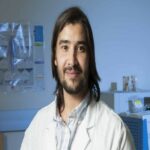
Dr. Mohamed Taha Moutaoufik earned his Ph.D. in Cell and Molecular Biology from the University Laval (Canada) in 2017 under the supervision of Dr. Robert M. Tanguay. During his doctoral studies, he investigated Drosophila small Heat Shock Proteins, focusing on their structure and cellular functions.
After completing his doctorate, Dr. Moutaoufik joined the Mitochondrial Systems lab at the University of Regina, under the guidance of Dr. Mohan Babu, following the acquisition of the Saskatchewan Health Research Foundation Postdoctoral Fellowship. In this role, he concentrated on unraveling the human mitochondrial interactome and elucidating protein complexes crucial for mitochondrial functions, with implications in neurodegeneration.
In 2020, Dr. Moutaoufik was honored with the Parkinson Canada Basic Research Fellowship, enabling him to explore Brain Region-Specific CHCHD2 Protein Assemblies and their involvement in Parkinson’s Disease.
Subsequently, in 2022, he secured the prestigious Canadian Institutes of Health Research Postdoctoral Fellowship to delve into the role of TARDBP mutation in Amyotrophic Lateral Sclerosis.
In 2023, Dr. Moutaoufik transitioned to the Faculty of Medical Sciences at University Mohamed IV Polytechnic as an assistant professor, continuing his contributions to the field of biomedical research.
Dr. Mohamed Taha Moutaoufik earned his Ph.D. in cell and molecular biology from the University Laval (Canada) in 2017 under the supervision of Dr. Robert M. Tanguay. During his doctoral studies, he focused on investigating Drosophila small Heat Shock Proteins and elucidating their structure and cellular functions.Following the completion of his doctorate, Dr. Moutaoufik joined Dr. Mohan Babu’s Mitochondrial Systems lab at the University of Regina as a Saskatchewan Health Research Foundation Postdoctoral Fellow. His research primarily involved unraveling the human mitochondrial interactome and deciphering protein complexes crucial for mitochondrial functions, with implications in neurodegenerative diseases.In 2020, Dr. Moutaoufik received the Parkinson Canada Basic Research Fellowship, enabling him to investigate Brain Region-Specific CHCHD2 Protein Assemblies and their role in Parkinson’s Disease. Subsequently, in 2022, he secured the prestigious Canadian Institutes of Health Research Postdoctoral Fellowship to elucidate the role of TARDBP mutation in Amyotrophic Lateral Sclerosis.Dr. Moutaoufik transitioned to the Faculty of Medical Sciences at University Mohamed IV Polytechnic in 2023 as an assistant professor.
Contact: mohamed.moutaoufik@um6p.ma
Interests:
The Moutaoufik Lab employs cutting-edge techniques in systems proteomics and interactome network mapping to unravel the complex landscape of human neurodegenerative diseases. Operating at the intersection of biochemistry, molecular biology, bioinformatics, and systems biology, the lab leverages diverse expertise to understand the multifaceted nature of neurodegenerative diseases and develop innovative therapeutic strategies.
Research Focus:
-
- Integration of protein interaction networks to enhance understanding of mitochondrial protein functions in health and disease.
- Identification of key players involved in maintaining mitochondrial homeostasis and identification of potential dysregulated pathways contributing to the onset and progression of complex neurodegenerative diseases.
- Utilization of proteomic approaches for precision diagnosis of complex neurodegenerative diseases.
- Unraveling drug targets in complex neurodegenerative diseases through systems biology approaches.
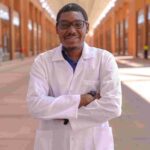
Ph.D., M.P.H., is an Assistant Professor of Epidemiology in the Faculty of Medical Sciences. His research focuses on chronic disease prevention and management among diverse populations. Dr. Laouali’s expertise lies at the intersection of environmental and lifestyle epidemiology and applied causal inference methods. Dr. Laouali is dedicated to transforming research into action by engaging the community, health system, and policy stakeholders in adapting, implementing, and sustaining interventions that address health disparities and promote health.
I am particularly attracted to interdisciplinary research that involves environmental and nutritional epidemiology, identification of biological mechanisms, and public health policy interventions. Considering this, my research program prioritizes enhancing evidence regarding the causal relationship between exposures to environmental and nutritional factors from preconception through adulthood and their impact on health. This focus will include, but not be restricted to, investigating underlying biological mechanisms such as quantifying the contribution of oxidative stress, inflammation, and microbiota diversity.
Research Focus
-Develop large-scale cross-sectional and longitudinal studies and generate a comprehensive library of biological samples.
-Strengthen the evidence linking climate change, environmental and lifestyle factors to health, and advance understanding of the mechanisms involved.
-Estimate the effects of interventions on environmental and lifestyle factors on chronic diseases distribution.
Publications
Google Scholar: https://scholar.google.com/citations?hl=en&user=2M8Lo8wAAAAJ
ResearchGate: https://www.researchgate.net/
Contact : nasser.laouali@um6p.ma

Dr. Hassan Noukrati earned his master’s degree in molecular chemistry, jointly accredited by Cadi Ayyad University in Marrakech, Morocco, and the University of Paul Sabatier in Toulouse, France, in 2011. He then completed his Ph.D. in Materials Science and Engineering from Cadi Ayyad University in Marrakech and the National Polytechnic Institute of Toulouse. Following his Ph.D., Dr. Noukrati pursued postdoctoral fellowships, initially at Cadi Ayyad University and subsequently at the Faculty of Medical Sciences at UM6P. In 2021, Dr. Noukrati transitioned to a Research and Education Fellow position at the Faculty of Medical Sciences at Mohammed VI Polytechnic University. Currently, he serves as an Assistant Professor at the same institution. His research focuses on developing new biomaterials, including calcium phosphate, bioactive glasses, and their association with biomolecules such as polymers and drugs, for applications in bone regeneration, cartilage repair, and drug delivery. He has authored numerous articles on Biomaterials for Bone Regeneration published in indexed international journals.
Contact : hassan.noukrati@um6p.ma
Interests
– Design of high-performance biomaterials based on phosphate materials and/or bioactive glasses
(powders, cements, composites…) for medical applications (bone regeneration, DDS…).
– Investigation of the interfacial properties of phosphate- & glass materials-based biomaterials.
– Physicochemical characterization of materials: XRD, TGA, FTIR, SEM, BET, NMR, Porosimetry,
Chemical analysis, Mechanical and Electrokinetic properties.
Research Focus
– Correlation between the synthesis parameters and physicochemical characteristics of calcium phosphate and bioglass materials.
– Conception of new injectable calcium phosphate cements and investigation of their structural, rheological, mechanical, electrokinetic and biological properties.
– Association/Functionalization of calcium phosphates and glass compounds with bionanomaterials to develop new composites with additional therapeutic functions
(antibacterial properties, antioxidant, osteogenic, etc).
– Optimization of the adsorption/release processes of bioactive substances onto the formulated compounds (identification & control of the driving parameters of the processes) for local targeted treatment of bone pathologies.
Publications
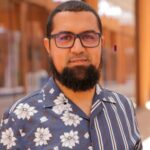
A seasoned biostatistician and data scientist with a Bachelor of Science in Applied Mathematical Sciences from Cadi Ayyad University and PhD in Bayesian statistical decision theory, from the same university, during which he spent a research training at Sherbrooke University in Canada. He received his Master’s in Computer Science, Statistics, and Mathematics Applied to Production Management from the University of Toulouse Jean-Jaures. Afterward, he spent his postdoc in Machine learning and data analysis at the College of Computing at UM6P, in the framework of a project entitled:” Digital farming”, in collaboration with IDSS-MIT and CESFRA-UM6P teams in favor of the business unit AgriEdge, He possesses comprehensive expertise in biostatistics, particularly in randomized controlled trials, internal and external validity, and statistical and AI solutions for healthcare. His research interests span the design of experiments in clinical trials, time series forecasting and analysis for Sleep/wake scoring, image segmentation, Association studies for Epidemiology, Genomics, Neuroscience, and Proteomics, employing various AI and machine learning techniques.
Dr. Younes OMMANE has an extensive academic experience, teaching a variety of statistics and data science subjects at the Faculty of Medical Sciences, School of Collective Intelligence and College of Computing at Mohammed VI Polytechnic University and Ecole Centrale de Casablanca and ENCG Marrakesh, among other institutions. He has contributed to the field through publications, book chapters, and conference presentations worldwide.
Contact : younes.ommane@um6p.ma
Interest
Dr. Younes OMMANE is deeply engaged in biostatistics, with a pronounced interest in ensuring internal and external validity in randomized controlled trials. His pursuit of statistical excellence extends to the design of experiments (DOE), with a keen focus on applications to clinical trials, chemistry, and agriculture. He delves into preprocessing, decomposition methods, and data augmentation techniques in time series forecasting and analysis, particularly for sparse or imbalanced data sets. He is also adept at employing hybrid and ensemble methods, multi-task learning, and attention-based prediction models for predictive maintenance. Beyond the traditional scope of biostatistics, He is actively exploring the intersections of AI and machine learning with healthcare, contributing to advancing medical treatments. Moreover, he is deeply invested in the mathematical underpinnings of machine learning methods, including fine-tuning and nature-inspired optimization techniques.
Research Focus
- Biostatistics, Artificial intelligence, Design of clinical trials, Survival analysis and Design of experiment
- Epidemiology, Neuroscience, Genomics, Transcriptomics, Proteomics and Peptide networks scoring.
- Cancer, Diabetes, Blood vessel retinopathy, Hypertension and Renal Artery stenosis (left/right), A. V Fistula.
https://orcid.org/0000-0001-6827-2967
Affiliated faculties

Dr. Allal BARROUG obtained a bachelor’s degree in chemistry (1979) from Mohamed V University of Rabat in Morocco, a Diploma of Advanced Studies (1980), and a third cycle Doctorate (1982) in materials science from the National Polytechnic Institute of Toulouse in France. He then completed a PhD (1989) in physical chemistry of interfaces at the Catholic University of Louvain-La- Neuve in Belgium. He serves currently as a full Professor (grade D) at Cadi Ayyad University of Marrakech since 1982 and as adjunct Professor at Mohamed VI Polytechnic University of Benguerir in Morocco, since 2017. The research interests of Dr. A. BARROUG include the elaboration of biological calcium phosphates (CaPs), bioactive glasses (BGs), and related hybrid compounds with tailored characteristics. He investigates the interfacial properties of these compounds upon contact with selected biomolecules for bone substitution/regeneration and drug delivery systems application for the treatment and prevention of several bone disorders. In this field, Dr. A. BARROUG designed a system for the local delivery of chemotherapy to malignant solid tumors based on calcium phosphate nanoparticles when he worked as a senior research scientist at Harvard Medical School (1998). The research activities also examine the surface properties of natural phosphate materials and hybrid compounds in relation to natural resources valorization and environmental applications. The passion of Dr. A. Barroug is teaching and training students. He supervised several doctoral and master theses, published several articles in peer-reviewed journals and conference proceedings, and currently serves as a reviewer for many reputed journals.
Contact : allal.barroug@um6p.ma
Publications
https://www.scopus.com/authid/detail.uri?authorId=6602119162

Armand Bensussan completed his PhD training during the early 1980s in the laboratories of Professor Jean Dausset (Saint-Louis Hospital, Paris, France) and Professor Stuart F Schlossman (Harvard Medical School, DFCI, Boston, MA). He is the Research director at INSERM and chief of the Skin Research Center and the INSERM unit 976 at Saint-Louis Hospital in Paris, France. He obtained several awards including two distinct French Academy of Sciences awards, the clinical investigation award from the French Foundation for Medical Research, the immunology Bernard Halpern award, and the national award of project leaders for the creation and/or the development of highly innovative technology companies. He was the past president of the French Society of immunology. He is the co-founder of the biotechnology company Orega Biotech (www.orega-biotech.com). His main scientific contributions have been in the field of basic and clinical immunology and in tumor dermatology. He is author of more than 322 international scientific publications and editor of two scientific books. He is a member of the Human Cell Differentiation Molecules council (http://www.hcdm.org) and of the EuroMAbNet council (http://www.euromabnet.com).
RESEARCH FOCUS
We are interested in two research themes, which are the oncodermatology and the chronic skin inflammation. We combine molecular, functional and genetic approaches to identify new targets for the diagnostic and the therapy of pathologies associated with the skin such as melanomas, cutaneous T-cell lymphomas (CTCLs) and psoriasis. Thus as an example, we have shown atypical expression of KIR3DL2 at the cell membrane of CTCLs. For the past few years our work contributed to demonstrate that this functional receptor was involved in the pathophysiology of the tumor and constituted a reliable therapeutic target using a specific monoclonal antibody IPH4102 developed with the biotechnology company Innate Pharma. A phase II study of IPH4102 in patients with Sézary syndrome is ongoing. The studies of the molecular signaling recruited in melanoma cell proliferation allowed us to propose an original therapeutic approach that we are testing now in animal models.
MAIN CONTRIBUTIONS
We have identified CD158k/KIR3DL2 as a new phenotypic marker for circulating Sézary cells in patients with Sézary syndrome (SS). We have shown that CD3+ CD158k+ phenotyping is a reliable and objective marker to monitor the blood tumor burden in patients with SS both in routine practice and as a response marker in therapeutic response. Moreover, we studied the role of mutants of the c-Kit receptor in the transformation of melanocytes to show that melanocytes require a specific epigenetic environment to be transformed by c-Kit mutants highlighting a distinct molecular mechanism of melanocyte transformation. Our data showed that c-Kit mutants were bona fide oncogenes in melanocytes and good therapeutic targets. Finally, we identified and described initially on NK lymphocytes and subsequently on activated T and endothelial cells, CD160-GPI, a receptor specific for MHC class Ia/Ib molecules and HVEM. For the endothelial cells, we developed a unique anti-CD160 monoclonal antibody that is capable in vivo to react with tumor vasculature and to induce its normalization. Thus, we propose CD160-GPI as a target for a novel antiangiogenic and vascular normalization therapy. Further, although CD160-GPI is not expressed on normal resting or activated B lymphocytes we reported its expression on B-CLL. We now studied the possibility to use CD160-GPI as a potential therapeutic target for B lymphocyte malignancies. In addition, we described an additional isoform of CD160, CD160-TM, that expression is restricted to activated NK lymphocytes.

Prof Ali Idri is an Affiliated Professor at Faculty of Medical Sciences, UM6P. He is also a Full Professor at the National School of Computer Science and Systems Analysis, Mohammed V University. He holds a Ph.D. in Computer and Cognitive Sciences from the University of Québec at Montréal (2003), and a Doctorate 3rd cycle in Computer Science from the University of Mohammed V, Rabat (1997).
Throughout his career, Ali has held administrative and research roles, including as the head of a Department, and the head a research Lab. Ali was an Associate Professor in the Software Engineering and Information Technology Department at Ecole de Technologie Supérieure (ETS) de Montréal, Quebec, Canada for the period 2013 – 2017. Ali is an Expert evaluator at the National Center of Scientific Research (CNRST) in Morocco since 2017. He was the principal investigator of several leading national and international projects on the use of artificial intelligence and information technologies in health. Ali has published more than 290 papers in well-known journals and conferences and received many recognitions for his contributions to the field: (1) Among the top 2% researchers around the world in all scientific fields according to the ranking of Stanford University since 2021. (2) Among the Top-Ten researchers around the world in doing Systematic Mapping Studies in Software Engineering. (3) Among the Top-Ten authors in terms of frequency of publications in Software Engineering for the period 2014-2016. (4) the Best Moroccan Researcher Award in “Computer Science” for the period 2016-2020 during the second edition of “Research Excellence Awards” ceremony organized by Web of Science and the National Centre for Scientific and Technical Research (CNRST) on June 29, 2021. And (5) the best Moroccan scientists in the category Compter Science and Engineering of the AD Scientific ranking since 2021. He is an Associate Editor of two international journals: BMC Medical Informatics and Decision Making, and Scientific African. He published more than 290 articles in well-recognized journals and conferences.
Contact : aali.idri@um6p.ma
Interests
- Developing and validating AI techniques for biological and medical decision making
- Facilitating and improving medical services through the use of Information and Communication Technologies (Digital Health)
- Understanding and discovering knowledge in biological and medical domains through the use of AI paradigms (Augmented Intelligence)
Research Focus
- Breast Cancer screening using Machine and Deep learning on Mammograms and Clinical Data
- . Multimodal Deep Learning for Breast Cancer Diagnosis
- Interpretability of Machine and Deep Learning Black-Box in Biological and Medical Applications
- Digital Pathology for Cervical and Ovarian Cancers
- Data Augmentation in Digital Pathology using GANs
- Sleep Scoring using ensemble Learning
- Neuro-Fuzzy Systems to deal with the trade-off Performance-Interpretability in Biological and Medical Applications
- Uncertainty Quantification in Biological and Medical Classifications
- Medical data Preprocessing including Feature Selection, Missing Data and Imbalanced Data
- Predicting Blood Glucose Level for Diabetes Self-Management
- Detecting Retinopathy Diabetic using AI techniques
- Requirements Engineering for Health Applications
- Electronic and Mobile Personal Health Records
- Quality Evaluation of Software-powered Biological and Medical Applications
Publications
https://www.scopus.com/authid/detail.uri?authorId=6602789810
